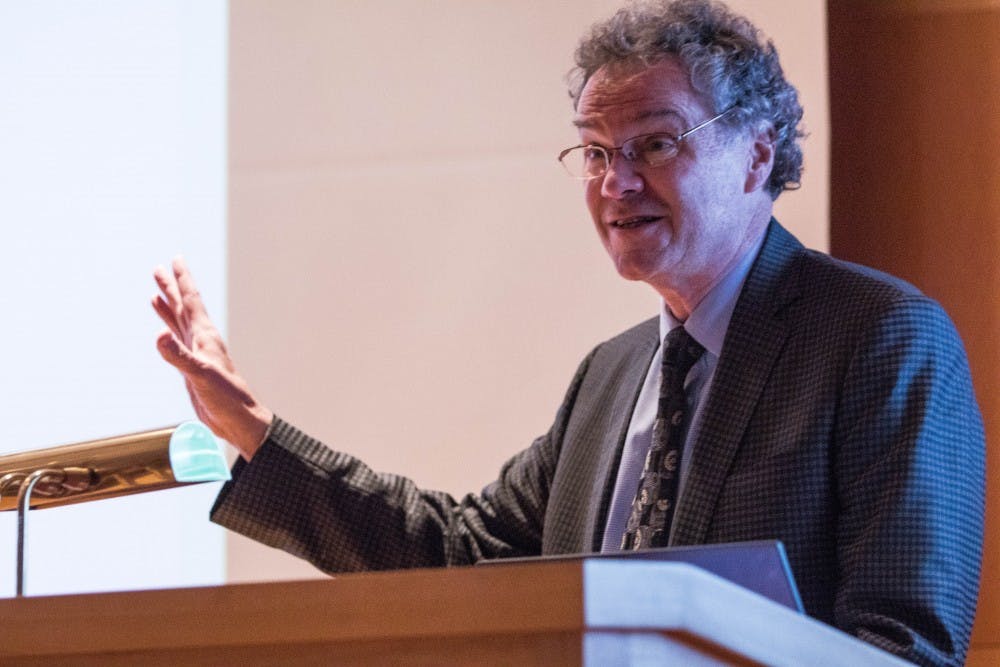Edward Ayers gives lecture on the nation during and after Civil War

Historian Edward Ayers presents on the Civil War and Reconstruction on April 20 in the Park Library Auditorium.
Charles V. Park Library's auditorium filled with applause as renowned historian and former President of the University of Richmond Edward Ayers took the stage.
Ayers spoke about his book "The Thin Light of Freedom: The Civil War and the Emancipation in the Heart of America" on April 20.
"I wrote the book to persuade people who think they don't care about the Civil War, that they actually do, if they look into it," Ayers said. "We would admire their accomplishments more if we knew what they were up against."
Ayers spoke of two counties that lay within the Shenandoah Valley: Augusta County, Virginia and Franklin County, Pennsylvania. The counties are only separated by 200 miles and they share similar geography and agriculture, yet they were separated by slavery.
Ayers had a goal of showing his readers the suffering and agony that Americans inflicted on each other during the war. Ayers went on to describe how Americans domesticated the war, so he wanted to show what American citizens went through during this time of despair.
The Confederate and the Union were burning each others towns and killing innocent citizens.
Ayers said President Lincoln's goal was to end slavery, not restore the union. During this time, Republicans began supporting and praising black citizens. They wanted slavery to end. This marked the turning point of the 1864 election, Ayers said.
After the war ended, reconstruction did not immediately follow. It wasn't until two years after the war had ended that reconstruction began.
"The white south was violent," Ayers said.
Reconstruction didn't begin until Republicans and black citizens pushed for it. The violence in south led to the reconstruction, Ayers said.
Ayers sees issues in today's society that were similar to those during the Civil War and post-Civil War.
"Today we grow to hate people we do not know, just like people did during the Civil War," Ayers said. "It'll continue to be a problem in the world if we don't take it head on."
Ayers said students do not always realize these struggles within the world.
"I had family members serve for the Union in the Civil War and I found it interesting as to how Ayers related times today to the times back then," said Austin Schondel, a freshman from Grand Rapids. "I didn't realize our nation was as split as is was during the Civil War era."
Schondel said Ayers was full of excitement and passion, making for an entertaining and informative lecture.
"I would recommend attending one of his lectures," freshman Cam Jousma of Grand Rapids said.



